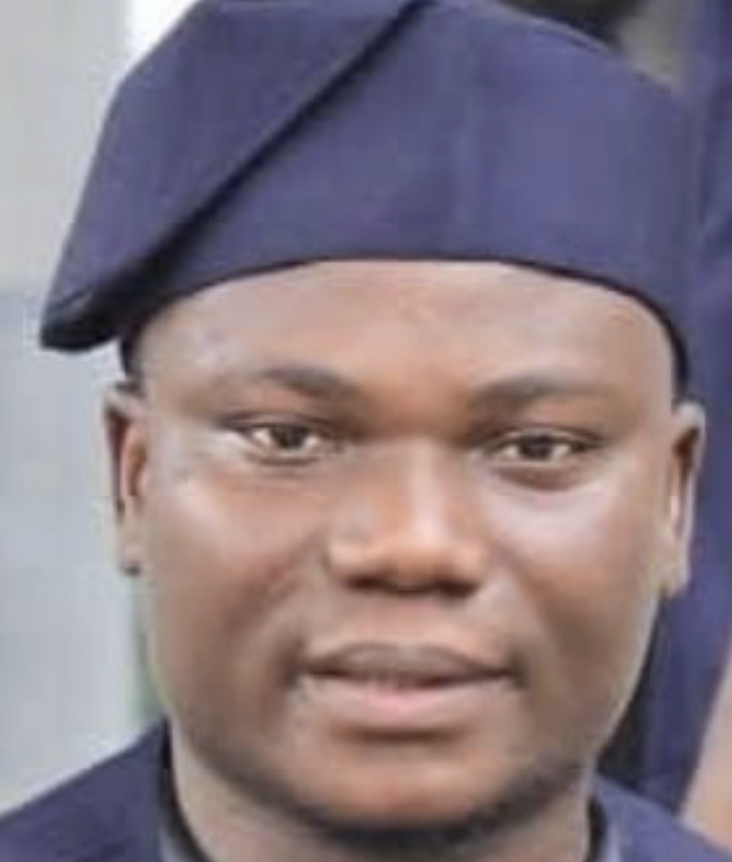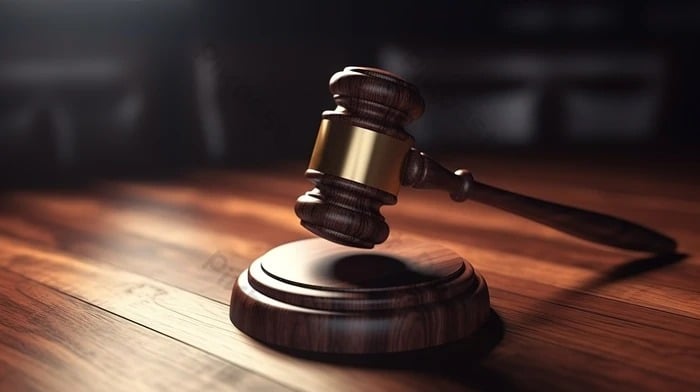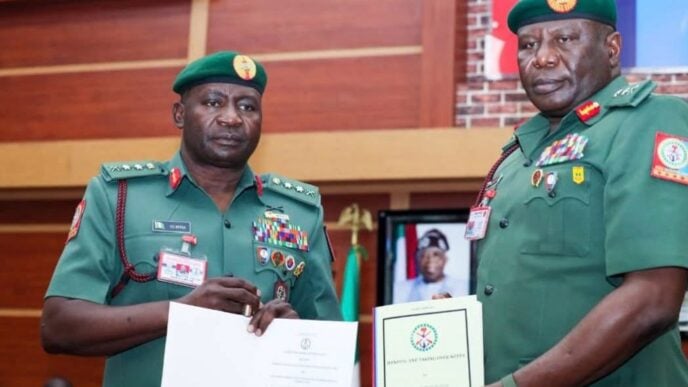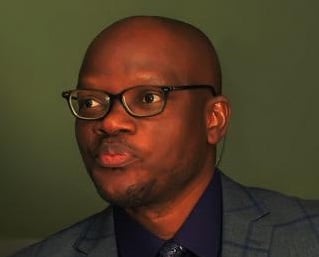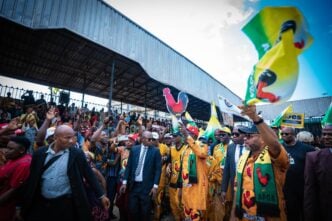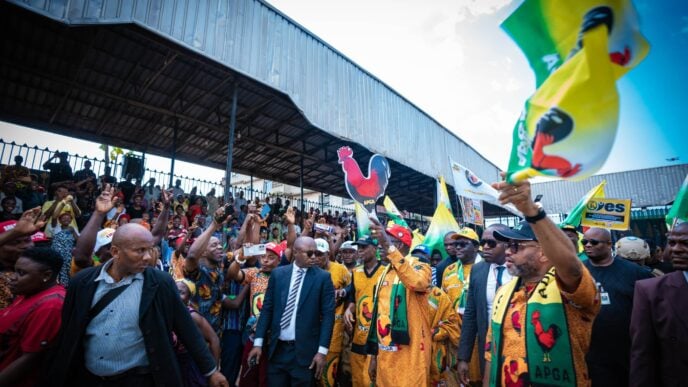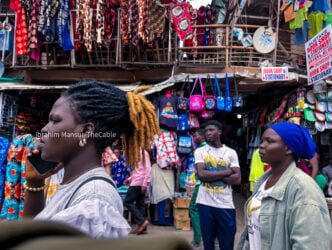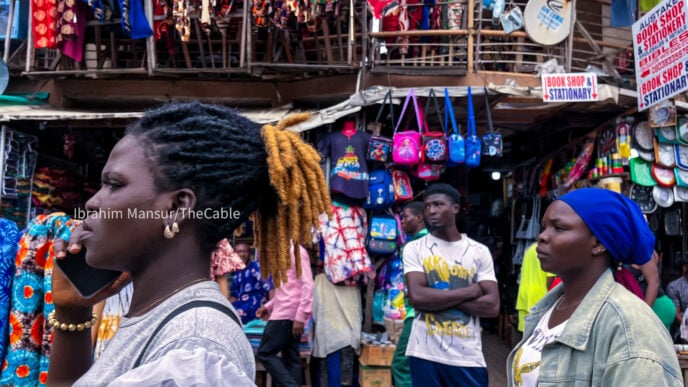In the complex and often disheartening theatre of Nigerian socio-politics, a dangerous and paradoxical trinity has emerged: a citizenry whose patriotic fervour is dwindling under the weight of systemic failure, a media landscape increasingly dominated by ‘activist-driven’ witch-hunts against public officials, and a consequential erosion of the very foundations required for a genuine fight for truth and justice. This is not a simple narrative of good versus evil, but a critical exposition of how the desperate pursuit of accountability can, when untethered from principle and context, devolve into a spectacle that ultimately serves the interests of the powerful it seeks to condemn, while further alienating a disillusioned populace.
The concept of patriotism in Nigeria has undergone a profound and troubling transformation. Traditionally understood as a fierce loyalty and love for one’s nation, this sentiment has been systematically bankrupted by a political class that has consistently failed to uphold its end of the social contract. For the average Nigerian, patriotism is not reflected in the blind waving of a green-white-green flag, but in the tangible realities of life: access to electricity, clean water, security, and dignity. When the State, through decades of grand corruption, staggering incompetence, and brazen impunity, fails to provide these basic necessities, it severs the emotional and psychological bonds of national pride. What remains is not a lack of love for the idea of Nigeria, but a rational and profound disillusionment with the reality of the Nigerian state. This dwindling patriotism is not apathy; it is a defense mechanism, a withdrawal of legitimacy from a system that has proven itself to be predatory. The consequence is a populace that is increasingly disengaged from civic duties viewing the machinations of government as a distant, irrelevant, or hostile enterprise. This creates a vacuum where cynicism thrives, and the collective will needed to demand systemic change fractures into individual survival strategies.
Unbeholding, into this vacuum of state legitimacy and waning traditional patriotism steps a new, powerful, and often chaotic force: the activist-driven media witch-hunt. Fuelled by social media and a 24/7 news cycle, this phenomenon involves the public, often mercilless, targeting of specific public officials by activists, online influencers, and segments of the press. The tools of this hunt are not forensic audits or court filings, but hashtags, viral threads, sensationalist headlines, and carefully curated narratives. These group of Nigerians are like mini gods who, like prophets, announce themselves as ‘saviours’ of the common man! They are not far from the oppressors they claim to be fighting. If anything, they are mostly tools used by one oppressor to fight another oppressor. They are the semantic implication of the word “cashivism”. For all their actions, comradeship, blabbing, anti-corruption campaigns, and protests; there’s always a resultant end, which is, getting paid! To be clear, the impetus for this is undeniable. In a nation where anti-corruption agencies are often perceived as tools of political vendetta and the judiciary moves at a glacial pace, if at all, the public square becomes the court of first and last resort. There is a cathartic release in seeing a powerful figure being “dragged” online, their alleged opullence and crimes laid bare for collective scorn. It creates an illusion of accountability in a system that offers none.
However, the critical danger lies in the methodology and its unintended consequences. The term “witch-hunt” is poignant because it implies a pursuit not based on evidence, but on presumption, hysteria, and the strategic creation of villains. The activist-cashivist media complex often operates on the principle of “guilty until proven innocent,” trying cases in the court of public opinion where the rules of evidence do not apply, and nuance is the first casualty. This approach has several corrosive effects. First, it often devolves into ad hominem attacks, focusing on personality over policy, on luxury watches and real estate portfolios over the intricate mechanisms of governance and systemic corruption. This personalization obscures the larger, more insidious network of institutional decay, allowing the broader system to escape scrutiny while a few individuals are sacrificed as scapegoats. Secondly, the sensationalism required to sustain these hunts often leads to exaggeration, the circulation of unverified claims, and in some cases, outright fabrications. When one high-profile allegation is debunked, it provides ammunition for the entire political class to dismiss all criticism as “fake news,” thereby granting cover to the genuinely corrupt. All thanks to those who have made cashing out through activism a way of life!
Advertisement
Need I announce that only in Nigeria do we have nearly all activists as wealthy, and some, even wealthier than the politicians or public office holders they claim to condemn? What has happened to the selfless puritanical Ghandi-style of activism; devoid of the grandeur and oppulence that comes with fame? On what moral grounds do people who haven’t even held the simplest or least of political or public office position(s) school others on effective management and leadership? Why are nearly all Nigerian ‘activists’ wealthy if the business is ‘selfless’ and ‘not-for-profit’? Today, the voice of people with ideologies and true sense of activism are unheard because they belong to the poor masses, and have no opportunity or platforms to express themselves, compared to the ‘cashivists’ who are successful in the business. What irony!
The most profound consequence of this dynamic is its catastrophic impact on the real fight for truth and justice. The activist witch-hunt, for all its righteous fury, often becomes a performative distraction. It creates the sensation of accountability without its substance. While the nation is engrossed in the dramatic downfall of one former Governor, serving Minister or agency head, the opaque systems that enabled their malfeasance; the bureaucratic labyrinths, the patronage networks, the legal loopholes remain intact and unexamined. The fight for justice becomes a series of disconnected skirmishes rather than a strategic war against a system. Furthermore, this environment fosters a “with-us-or-against-us” tribalism that stifles genuine discourse. Any attempt to provide context, to demand verified evidence, or to defend due process is immediately branded as being complicit with corruption, and hence an immediate black-listing by the notorious gangs of cashivists. This intellectual shutdown is a gift to the corrupt, who thrive in an environment of chaos and unverified accusations, where the noise of the mob drowns out the quiet, meticulous work of actual investigation and institutional reform.
In the end, the dwindling patriotism and the rise of media witch-hunts are two symptoms of the same disease: a profound failure of the Nigerian State. The former is the citizen’s response to this failure; a withdrawal of faith. The latter is a flawed, often counterproductive, attempt at a remedy. The path forward requires a difficult recalibration. It demands a patriotism not of blind allegiance to the State, but a fierce, demanding love for the Nigerian people and the potential of their nation, a patriotism that channels outrage into strategic, sustained, and principled civic engagement. Simultaneously, the media and activist community must evolve from merely hunting witches to dismantling the entire architecture that allows witchcraft to flourish. There must be a collective efforts among Nigerian activists to ostracize known ‘cashivists’. This means complementing public shaming with rigorous, evidence-based reporting; advocating for and supporting the strengthening of independent institutions like the judiciary and the EFCC; and shifting the narrative from individual villains to systemic reform. The real fight for truth and justice in Nigeria will not be won with trending hashtags alone, but through the unglamorous, persistent, and collective work of building a nation that is truly worthy of its people’s patriotism.
Advertisement
Now that I have sprinkled some nails on the floor, let those whose feet are magnetic pick up the nails. Time is indeed, pregnant! May the sun shine tomorrow…
Jamiu Adoke writes from Abuja, Nigeria and can be reached via [email protected]
Views expressed by contributors are strictly personal and not of TheCable.
